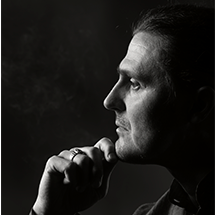The law is considered specifically in relation to a living human being, and not to some speculative or conditional creature, which means that it must protect all three levels of his existence — his essence, content and form, that is, him as a soul, him as a personality, and him as a citizen. These spheres are reflected even in the human body itself:
- his soul — from head to chest;
- his personality — from the solar plexus to the pelvis;
- him as a citizen — from the hips to the feet.
At the same time, it is clear that the overlying sphere defines and controls the underlying one.
Thus, we will distinguish three levels of law governing the relevant area: Spiritual, Natural and Social.
Spiritual law is the eternal, highest reasons and principles of human existence, represented by their religion, faith or worldview, on the basis of which all the lower spheres of their life are built.
Natural law encompasses the rights inherent to a living being: to live, to breathe, to eat, to sleep, to own property necessary for existence, to move around as necessary for his life and health, to maintain bodily integrity, to freely choose medical treatments, to create a family, to have children and the like. The inalienability of rights means that if they are taken away, a person dies as a natural being. If society takes them away, it destroys itself, killing itself from within.
Social law comprises rules and norms of behaviour that each particular society can discuss and determine for all individuals located on its territory, depending on the characteristics of the habitat, economic relations, customs and traditions.
Due to the hierarchy of the human spheres indicated above, social law must by all means be based on the spiritual and natural ones — i.e. follow from them, and not contradict them.
An individual will develop and feel harmonious if he does not change his sacred measures, principles, or manifestations of a higher plane under the influence of his personal desires and well-being, i.e. manifestations of the inner plane. It will also be right if he does not allow the phenomena of the outer plane to interfere with his inner and higher spheres, and at the same time, of course, he himself will not consciously interfere with the inner and higher plans of other people.
The opposite tendencies, namely violence or the active influence of the outer plane on the inner and higher planes of human existence, will simply destroy him as a dignified and free citizen, as a personality and as a soul.
THE BOUNDARY BETWEEN SOCIAL AND NATURAL LAW
But where does social law end and natural or individual law begin? The doctrines of “natural law” and “positive law” existing in the philosophy of law stand on two opposite positions.
The concept of “positive law” recognizes as legal only the norms of positive law, that is, the totality of normative legal acts of the state, and argues that the right can be granted only by the will of the state, embodied in the law, and there can be no right outside this law.
The concept of “natural law” distinguishes between the concepts of “right” and “law” and asserts that each individual has some higher, inherent rights that do not depend on the changing norms and principles established by the state legislation, and operate directly: the right to protection from violence from other people and the state, the right to freely dispose of one's personality, and a number of others.
However, we cannot leave this important issue at the level of unresolved philosophical disputes, it is relevant and awaits an immediate solution at this particular moment in the life of each and any of us. Already now, in a public place, we can be stopped by officials or ordinary citizens and demanded to put on a medical mask or be forced to take an inoculation.
Knowledge of the three spheres of human existence and the corresponding three levels of law makes it possible to clearly understand that social rights are given to an individual by the People, as a subject, through their elected representative body, which formulates these rights, and the president, which guarantees to the folk the observance of the constitutional rights. Nature gives the man his natural rights. The people cannot cancel the rights that Nature grants a human being, which is why social rights should serve the natural human rights, and not contradict them. As for the higher, or spiritual rights, an individual receives them the ancestors of his genus, or kin. Nature cannot cancel those eternal principles on the basis of which the universe is built, and which were realized by our ancestors. All the more, it can not be done by the people.
